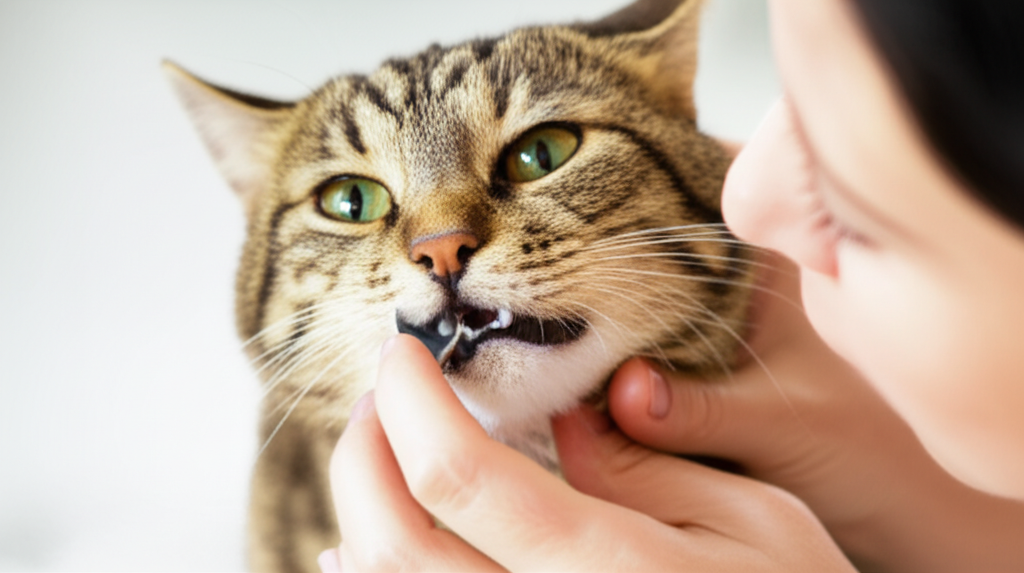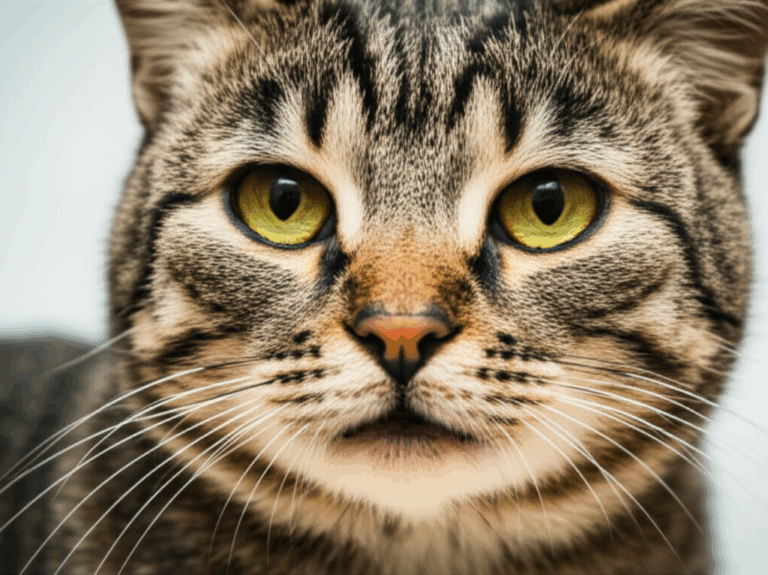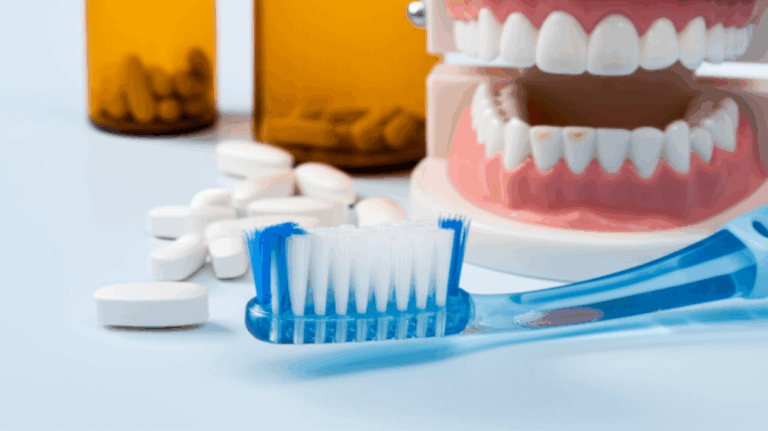
What To Do If Your Cat Has Dental Problems: A Complete Guide
Your cat’s mouth has a lot to say about their health. Dental problems in cats are very common and can cause more than just bad breath – they can hurt, make your cat stop eating, and might even hurt other important parts like the heart and kidneys. This guide is your simple, step-by-step way to notice mouth issues in cats, help your cat right away, work with your vet, and keep new mouth problems from showing up. If you care about your cat’s cute smile (and their health), read on. You’ll be glad you did.
Table of Contents
- Why Worry About Your Cat’s Dental Health?
- What Signs Should I Watch For in My Cat?
- What Immediate Steps Should I Take If I See Dental Trouble?
- How Will My Vet Examine and Treat Cat Dental Problems?
- What Are the Most Common Dental Diseases in Cats?
- How Do I Help My Cat Recover After Dental Treatment?
- What’s the Best Way to Prevent Dental Issues in Cats?
- Is My Cat’s Dental Issue an Emergency?
- How Much Does Cat Dental Care Cost?
- Common Questions About Cat Dental Problems
- Most Important Things to Remember
Why Worry About Your Cat’s Dental Health?
I’ve looked after many cats, and I can tell you this: taking care of their mouths really matters. Dental trouble isn’t just about stinky breath or sore gums. The germs from gum disease or swollen gums can get into your cat’s blood. When that happens, it can mess with your cat’s heart, kidneys, and even their liver. That’s why mouth problems are not just about smell or small pain—it’s a big deal for your cat’s health. If you leave it alone, it can even make your cat’s life shorter.
Did you know that over 70% of cats older than three years show signs of dental problems? Most owners only find out when their cat is already hurting. This is where you come in—keeping a close eye is very important.
What Signs Should I Watch For in My Cat?
Cats are great at hiding pain, but sometimes the signs are clear. Look for these clues:
- Bad-smelling breath: If your cat’s breath is really bad, something could be wrong.
- Change in eating: Is your cat not eating dry food or only chewing on one side? Maybe food falls out of their mouth.
- Pawing at the mouth or face: Some cats rub their face on things or scratch their jaw.
- Too much drooling: Sometimes you’ll see a bit of blood in the drool.
- Red, swollen, or bleeding gums: Gums should be pink, not really red.
- Brown or yellow stuff on teeth: This is plaque or tartar.
- Missing, broken, or wobbly teeth: Loose teeth are a big hint!
- Losing weight or seeming tired: Not eating hurts a cat’s body and energy.
- Swollen face: This happens with a mouth abscess.
- Cranky or acting differently: Even the sweetest cat can get grumpy from pain.
For more tips on keeping your cat’s mouth healthy and what’s normal, check out this guide on teeth health.
What Immediate Steps Should I Take If I See Dental Trouble?
You see there’s a problem, now what? Don’t worry. But you should move quickly.
- Don’t try to fix it at home, not even with “natural” things. Medicine for humans and home tricks can make things worse for your cat!
- Don’t hope things will fix themselves. Mouth problems just get worse.
So, what should you do? Call your vet and make an appointment. Write down your cat’s problems: when they started, what you’ve noticed, what food or toys you use. Tell your vet everything. The more you share, the more they can help.
Remember, dentists help people. Your vet does that for your cat! For more about why you need to care for teeth every day, look at this dental care page.
How Will My Vet Examine and Treat Cat Dental Problems?
Going to the vet can be scary for you and your cat, but knowing what happens can help a lot.
The First Look
Your vet will look inside your cat’s mouth. Sometimes cats are nervous and wiggle a lot – who wouldn’t? Your vet might need to give your cat some medicine so they stay calm and still, especially for cats who really don’t want to be touched.
The Dental Procedure
If your cat needs cleaning or dental work, this happens while your cat is asleep under anesthesia to keep them safe. While your cat is sleeping, the vet will:
- Take dental X-rays to look under the gums (where most problems hide).
- Remove tartar and plaque with special tools.
- Polish the teeth to make them smooth.
- Pull out any teeth that are broken or really bad.
- Give antibiotics if there’s an infection.
- Give pain medicine during and after the work.
This helps your cat feel better fast. If you want to learn about how dental labs help with fake teeth, crowns, and more, check out a crown and bridge lab.
What Are the Most Common Dental Diseases in Cats?
Knowing what could happen helps you get ready! Here are the main mouth problems in cats:
Gingivitis and Gum Disease
Gums get red and swollen. If you don’t do anything, the sickness goes deeper, hurting the tissue and even the bone around the teeth. Not good.
Feline Odontoclastic Resorptive Lesions (FORLs)
These are odd, painful holes in the teeth, almost like the tooth is breaking apart. Up to 70% of adult cats can get them.
Stomatitis
This is bad swelling of all the soft parts in the mouth. Cats with it usually have a hard time eating and are in a lot of pain.
Broken, Cracked, or Infected Teeth
Just like us, cats can break their teeth. Sometimes infection forms at the roots, causing a painful abscess. Your cat might hide the pain, but a vet must help right away.
For more info about dental sickness, see this page on dental diseases.
How Do I Help My Cat Recover After Dental Treatment?
Your cat had a dental procedure—now it’s your turn to help them bounce back.
- Give all the medicine your vet gave you. This might be antibiotics or pain pills. Don’t skip any, and ask your vet if you can’t give pills.
- Feed soft food for a while. Don’t give dry kibble until your vet says it’s okay.
- Watch for signs of problems: Bleeding, swelling, lots of drool, or acting very tired. If you see these, call your vet!
- Go back for check-ups. Your vet might want to see your cat again, especially after pulling teeth or draining an abscess.
Most cats heal in just a few days, but all cats are different.
What’s the Best Way to Prevent Dental Issues in Cats?
Stopping problems is easier and cheaper! Here’s what vets and cat lovers say:
Brush Your Cat’s Teeth Every Day
Sounds hard, but you can teach most cats to let you do it. Use a cat toothbrush and toothpaste (never use the kind made for humans). Start slow: let your cat taste the paste, then gently brush little by little.
Dental Food, Treats, and Chews
Some foods and treats, especially those approved by the VOHC (Veterinary Oral Health Council), help clean teeth as your cat eats them. Look for the VOHC seal on the bag or box.
Water Additives and Mouth Rinses
Some products say they fight plaque when you put them in water or use as rinses. These help, but they’re not as good as brushing and having your vet clean your cat’s teeth.
Regular Vet Visits
Don’t skip yearly check-ups! Your vet can spot trouble early and do a super-thorough cleaning under anesthesia—getting rid of yucky stuff you can’t reach at home.
Curious about how high-tech dental work is made? Take a look at a digital dental lab.
Is My Cat’s Dental Issue an Emergency?
Sometimes mouth trouble comes on slow. Other times, it hits hard and fast. Here are some emergencies where you should call your vet (or rush to the animal ER) right now:
- Big, sudden swelling on the face
- Can’t close their mouth
- A lot of bleeding that won’t stop
- Obvious, ongoing pain (crying loudly, hiding all the time, not moving at all)
If you ever aren’t sure, it’s better to be safe—call your vet right away.
How Much Does Cat Dental Care Cost?
Money is important to talk about. The cost can be a little or a lot, depending on what’s needed.
| Procedure | Average Cost (USD) |
|---|---|
| Routine Dental Cleaning | $300 – $800 |
| Cleaning with Teeth Pulled | $800 – $2,500+ |
| Dental X-rays (each time) | $100 – $300 |
| Antibiotics/Pain Medicine | $20 – $150 |
The price depends on where you live, the clinic, and how bad your cat’s mouth is when you go in. Harder cases (like pulling lots of teeth) cost more. Stopping problems before they start—like yearly cleanings—saves money and your cat’s comfort in the long run.
Think about pet insurance. Sometimes it pays for dental stuff, especially if you sign up before your cat has problems.
Common Questions About Cat Dental Problems
Does bad breath always mean my cat has a dental problem?
Most of the time, bad breath in cats means a mouth problem. It might be plaque, tartar, infection, or an abscess. Sometimes, other health problems (like kidney disease) can also make breath stink. But if your cat’s mouth smells bad, see your vet.
Why can’t I just get anesthesia-free cleaning?
It sounds easier, but big health groups say don’t do it. Anesthesia-free cleaning only gets the outside of the teeth—we miss what’s hidden under the gums. It can also scare or even hurt your cat. Only real vet cleaning (with your cat asleep) works for real.
How do I start brushing my older cat’s teeth?
Start slow and keep it short and nice. Let your cat taste the paste first. Rub the gums with your finger, then use a finger brush or small toothbrush. Go slowly, praise your cat, or give treats. With practice, it gets easier!
Most Important Things to Remember
- Don’t ignore dental signs. If you think something’s wrong, see your vet soon—waiting makes it worse.
- Regular check-ups and cleanings are needed for a healthy cat mouth.
- Stopping problems is best: Brush, use VOHC-approved diets, and try water additives to help keep problems away.
- Never use human medicine or home fixes without asking your vet.
- Mouth trouble hurts more than just the mouth. It can make your cat feel really bad and lead to bigger health issues.
You love your best friend. Use these tips to keep them pain-free and happy. If you want to know more about dental health for the whole family, including teeth info, check out trusted resources and stay ahead of mouth problems!








